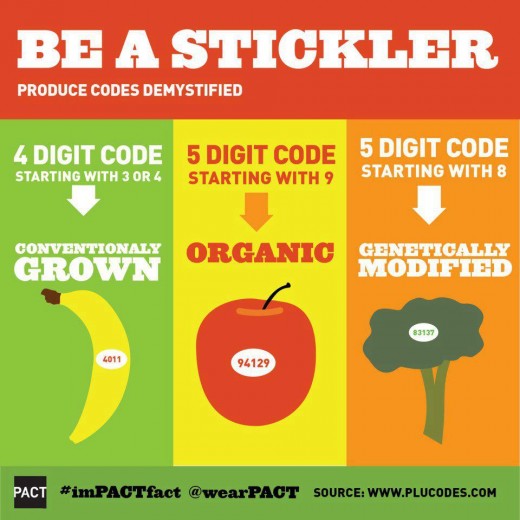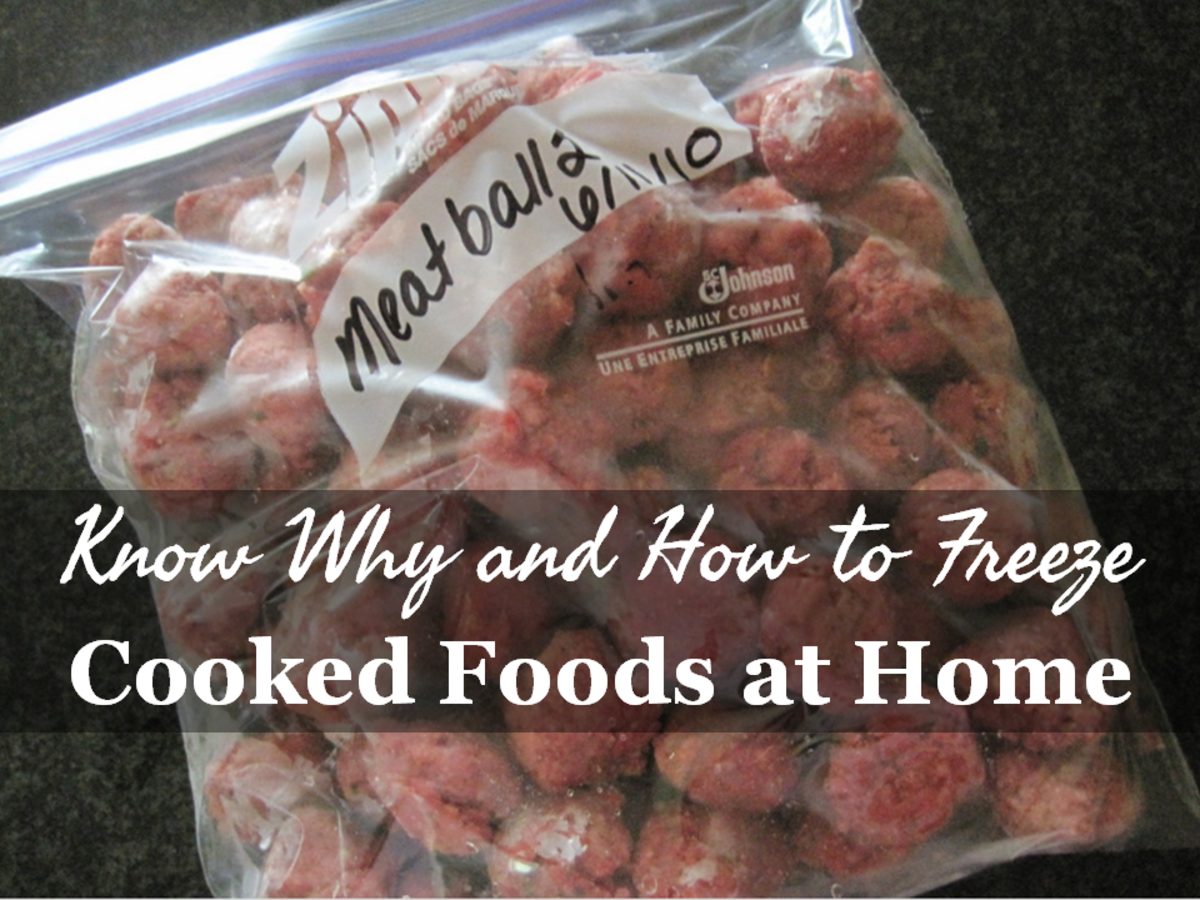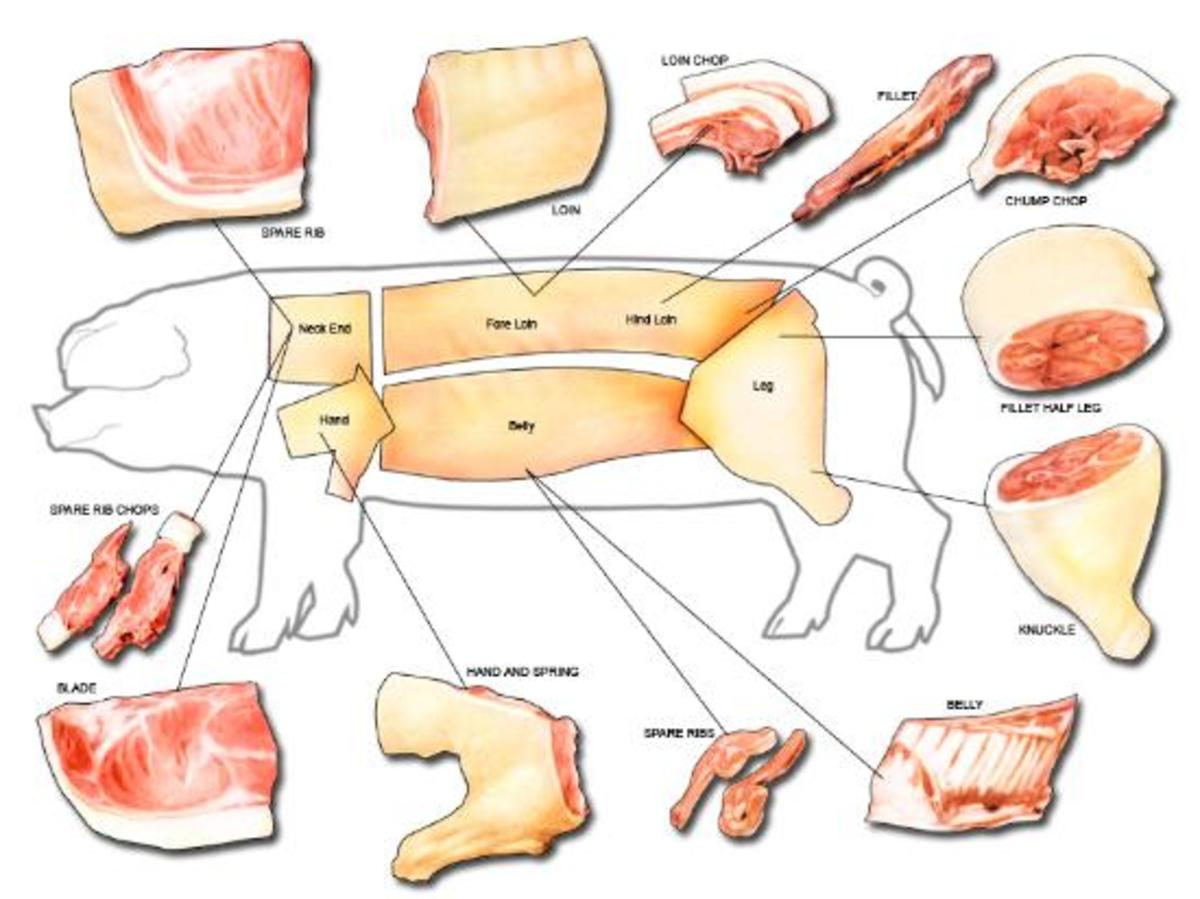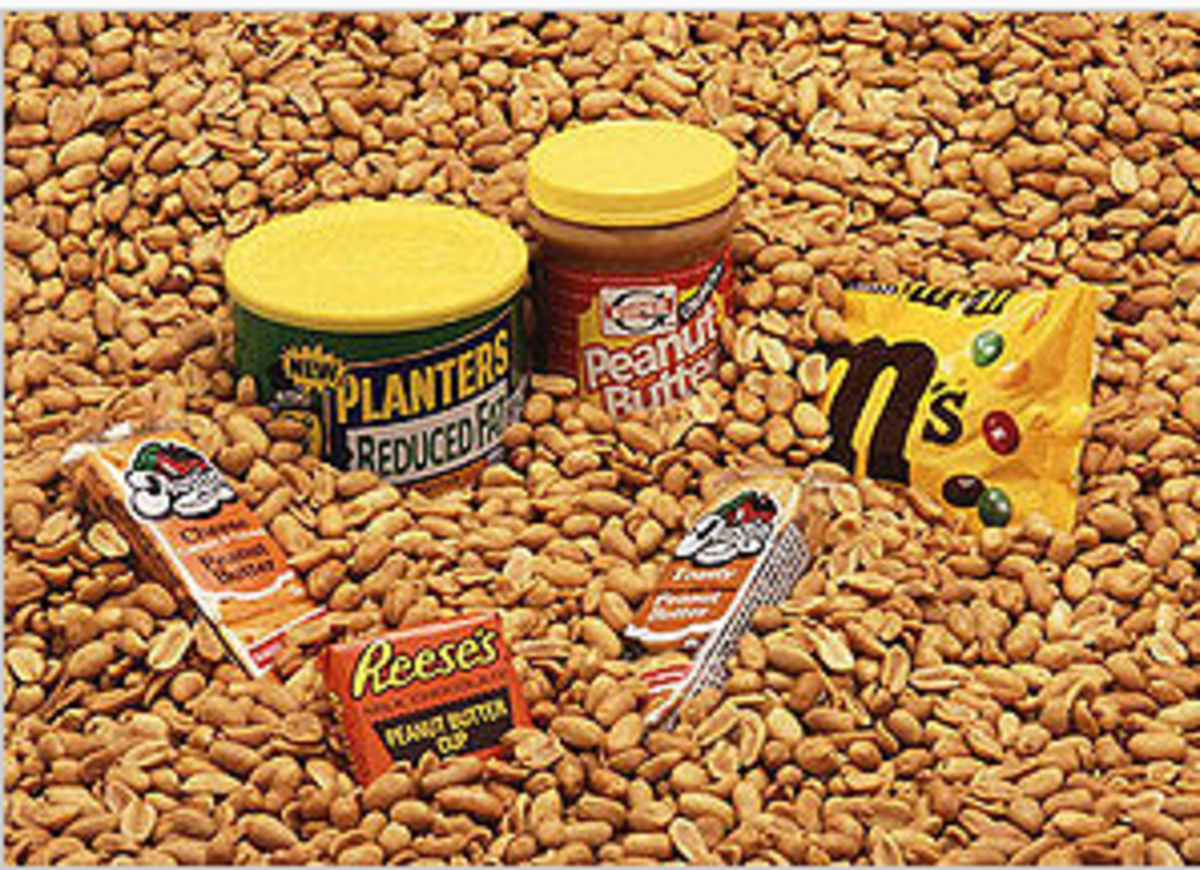Genetically Modified Foods and How to Choose Non-GMO

GMOs Permeate the Majority of Food Products
In today's world we have genetically modified (GMO, GM) ingredients that permeate the majority of food products at the grocery store. These are made from crops grown from transgenic seed such as corn, soy, sugar beet, cotton and canola.
Although numerous warnings have been reported from scientists and doctors of the high risk to health in the diet and environment, they are not included on the food product labels in the U.S. The law to label gmo products has been in place in the U.K. for over a decade.
There are brands to look for and brands to look out for. According to the Center for Food Safety, 85% of corn grown in the U.S. is genetically modified from transgenic seed. Corn and soy are experimental crops with unknown long-term effects. There is a need for the public, as tax-paying consumers, to call for safety testing and gmo labeling laws.
Whole Ear Corn on the Cob - GMO Version Now Available
The first GM corn product as whole ears in the grocery produce section was made available in the summer of 2012. As with all GMOs, neither Walmart nor Monsanto has any intention of labeling this new species of corn. Three traits engineered into the new GMO corn are two insecticides and the ability to absorb glyphosate herbicide without growth damage to the crops.
In three months, nearly 500,000 people signed petitions urging Walmart to refuse to stock the GMO corn. Over 150 events have taken place at Walmart stores across the country. Walmart gave an evasive reply stating that they don't specifically source out GMO foods and they follow all federal and state regulations.
GMO Study Results From the Earlier Days
The consensus among FDA scientists in the early 1990s was that GMOs were inherently unsafe and could lead to toxins, allergens, new diseases and nutritional problems. They made strong recommendations to their superiors to require long-term safety studies before allowing them to be both released into the environment and placed on the market.
Revolving Door Between the FDA and Biotech Food Industry
The former attorney of the primary biotech food company was the political appointee of whom was placed in charge of FDA policy. He later was appointed the vice president of Monsanto. Because of the policies he wrote while at the FDA, the warnings of the scientists were ignored and the FDA does not require a single safety study on bio-transgenic foods to this day.
Around that time period FDA officials were told by the government to be in support of the biotech industry. Therefore, if any plans were in the works to have GMO's listed on labels, they would have likely been dropped in favor of having to support the financial interests of five biotech seed companies, the USDA included.
Study Results Conducted on Rats
Consuming breakfast cereals made with gmo corn and soy may result in significant long-term risk to human health. It is highly recommended to apply a reasonable amount of caution over these common food ingredients. Many scientists have convincingly linked the ingesting of gmo corn to tumors, cancer, premature death and infertility in studies conducted on rats.
The long-term effects of gmo consumption are not known. Rats fed a life-time of gmo corn showed not only massive cancerous tumors, but also significant damage to kidneys, liver and other organs. Second generation female rats gave birth to smaller and fewer pups. Third generation gmo-corn-fed female rats gave birth to less pups per litter that weighed even less. Many of the third and fourth generation gmo-corn-fed rats were no longer able to reproduce at all.
How do we then determine which food products among the multitude on the shelves are made with gmo's and which ones are not?
A partial list of gmo food items and additives:
Corn, corn oil and additives
Soy oil and additives
Cottonseed oil
Canola (Canada) oil
Produce:
Price Look Up (plu) code stickers on produce:
GMO fruit has 5 numbers that begin with the number 8.
Conventional produce has 4 numbers beginning with 4.
Organic produce begins with the number 9.
There is no difference in appearance. Novel products such as seedless watermelon and tangelos are natural hybrids rather than genetically engineered.
Food Products Containing GMO Ingredients
mayonnaise and salad dressings
infant formula, baby cereals and snacks
frozen foods
corn chips and corn tortillas
cereals
soups and sauces with msg and corn thickeners
soy sauce and bbq sauce
peanut butter
vegetable oils
cake and baking mixes
children's snack foods
pancake syrups
honey made from bees that pollinate gmo plants
cookies
juices, drinks and sodas
chocolates use soy lecithin
gluten-free foods that contain gmo corn
milk and dairy products from cows fed GMO corn and injected with GMO growth hormone rbGH
Additives
sweetening agents - aspartame, high fructose corn syrup and sugar beets
flavor enhancer and stabilizer - msg (mono-sodium glutamate)
oils - cottonseed, corn, soy, vegetable and canola
cornmeal
baking powder
corn starch
citric acid, lactic acid
vanilla
maltodextrin - filler and sweetener
Maltodextrin passes very quickly from the digestive tract into the bloodstream. Like glucose, it can pass relatively easily through intestinal walls and into the blood. Maltodextrin that has been genetically modified from corn, soy or rice would not be a good thing to have in the blood.
Meats
The focus on the health impacts of meat generally conclude that the primary concerns have more to do with the chemicals rather than the meat itself. Animals raised on antibiotics and gmo growth hormones, corn, soy and alfalfa may amount to about 95% of all conventional meat.
Fresh meat doesn't contain sodium nitrite nor MSG that is used to process bacon, hot dogs, sausage, beef jerky, pepperoni and lunch meats, nor all the other chemical additives typically added to meat products. Unless it's grass-fed organic meat, it is almost certainly contaminated with GMOs.
Breakfast Cereals
Cereals most likely to contain genetically modified corn, soy and other ingredients:
Cocoa Puffs, Corn Chex, Kellogg's Frosted Flakes, Corn Pops and Corn Flakes, Quaker Honey Graham Oh's, Kashi Heart to Heart, Kix, and Honey Nut Chex.
Nature's Path is an example of a non-gmo cereal.
Choosing real foods that are also non-gmo's provide us with better digestion, improved learning performance, better sustained energy, moods and optimism.
Guidelines to select foods without gmo's at the supermarket:
- Schedule ahead for your trip to buy groceries. Make it a period of time when you are neither rushed nor hungry.
- Skim through ingredient labels for the primary culprits, such as corn and soy and their derivatives which are numerous.
- Seek the organic varieties to find ones that are both appetizing and within your budget.
- Check the plu numbers on the produce stickers to avoid gmo's which generally begin with an 8.
Real maple syrup, a variety of canned goods made by the Amish and some products that have generally been sold in health food stores are now available at grocery stores.
Most pre-processed packaged foods are filled with gmo additives to thicken, sweeten, emulsify, enhance flavors and as preservatives.
Most gmo cereals and food products are directed toward children who are consuming the most genetically modified foods at a time when nutrition is required for proper cell growth and function. The invasion of gmo foods introduces yet another reason for us to alter our food choice habits. It is important to be aware of what foods are genetically modified, keep them to a minimum and make the effort to incorporate non-gmo foods in our diet. Applying this precautionary measure helps in dodging any potential adverse effects in the immediate future and over the long term.
Lizolivia
truefoodnow.org
saynotogmos.org/
Additional Information About GM Food
- Pesticide and Herbicide Use is on the Rise for GMO Food Crops
Genetically modified organisms, GMOs, are transgenic foods grown from seeds that had genes from other species and organisms inserted into the seeds. Corn, soy and cotton have Bt toxin DNA inserted into the seeds. Bt acts as a concentrated pesticide. - Institute for Responsible Technology - Buy Non-GMO
Provides a list of food products and brands that are made without gmo ingredients. Helpful tips for choosing non-gmo food items at the supermarket.








